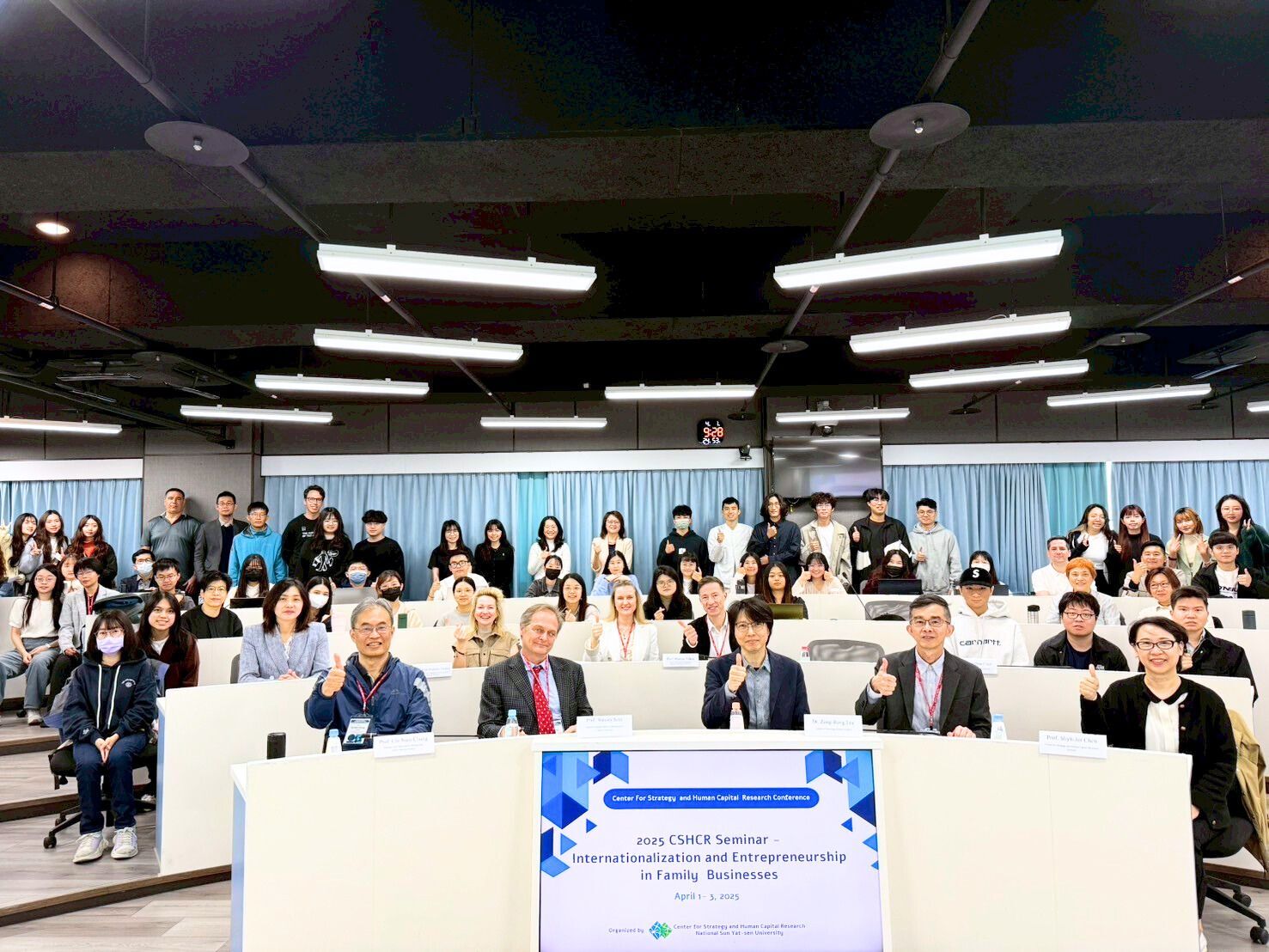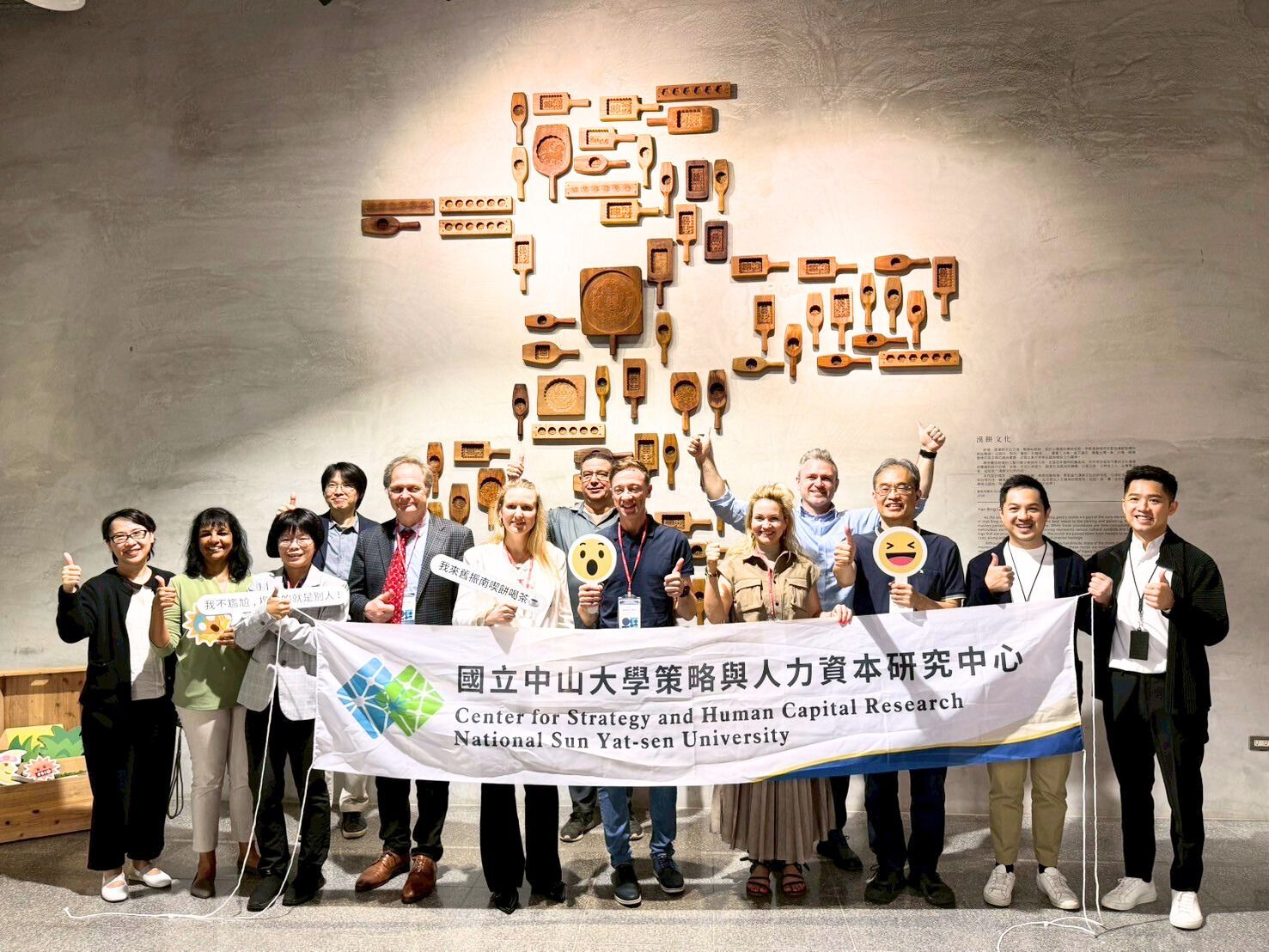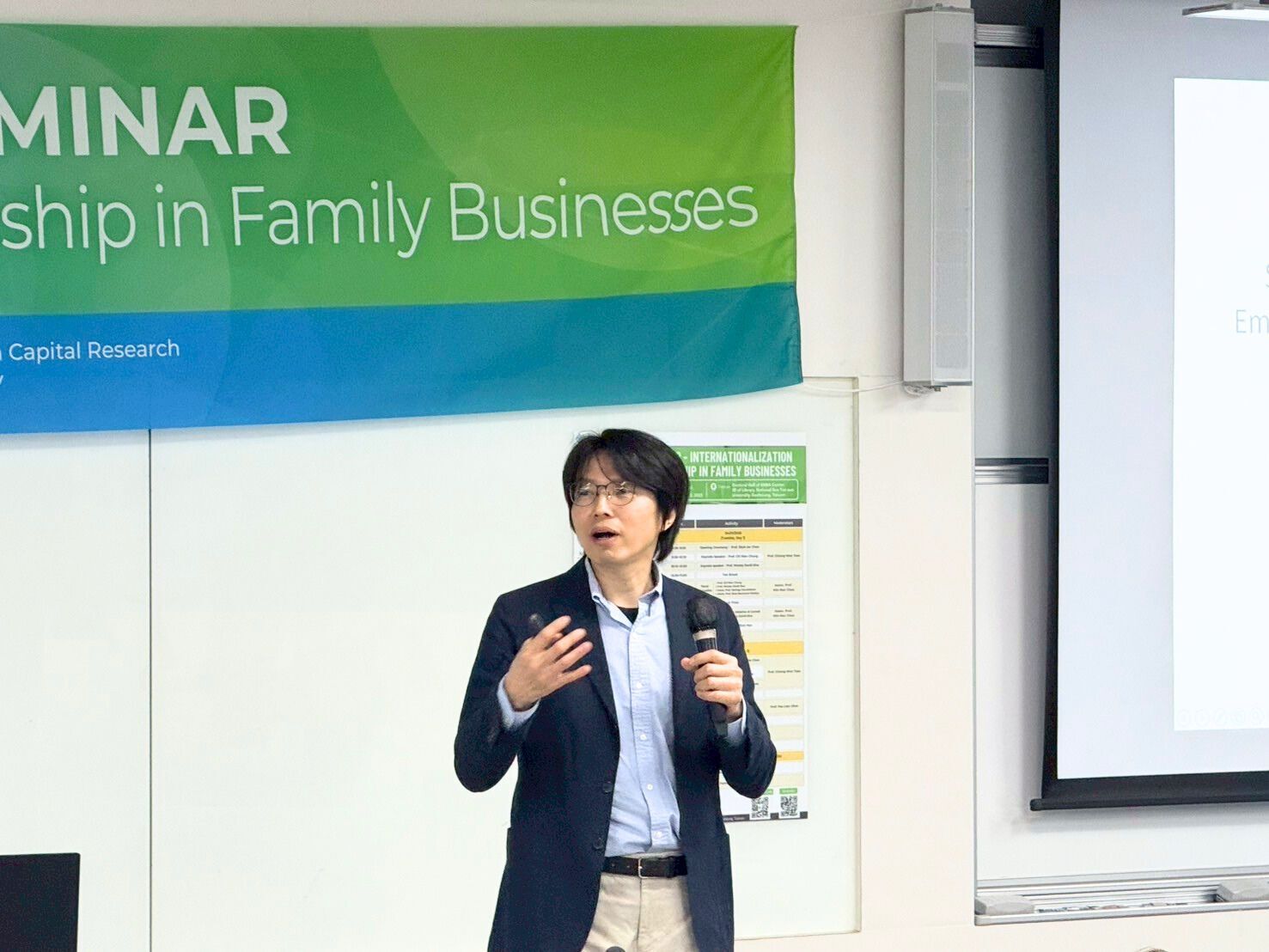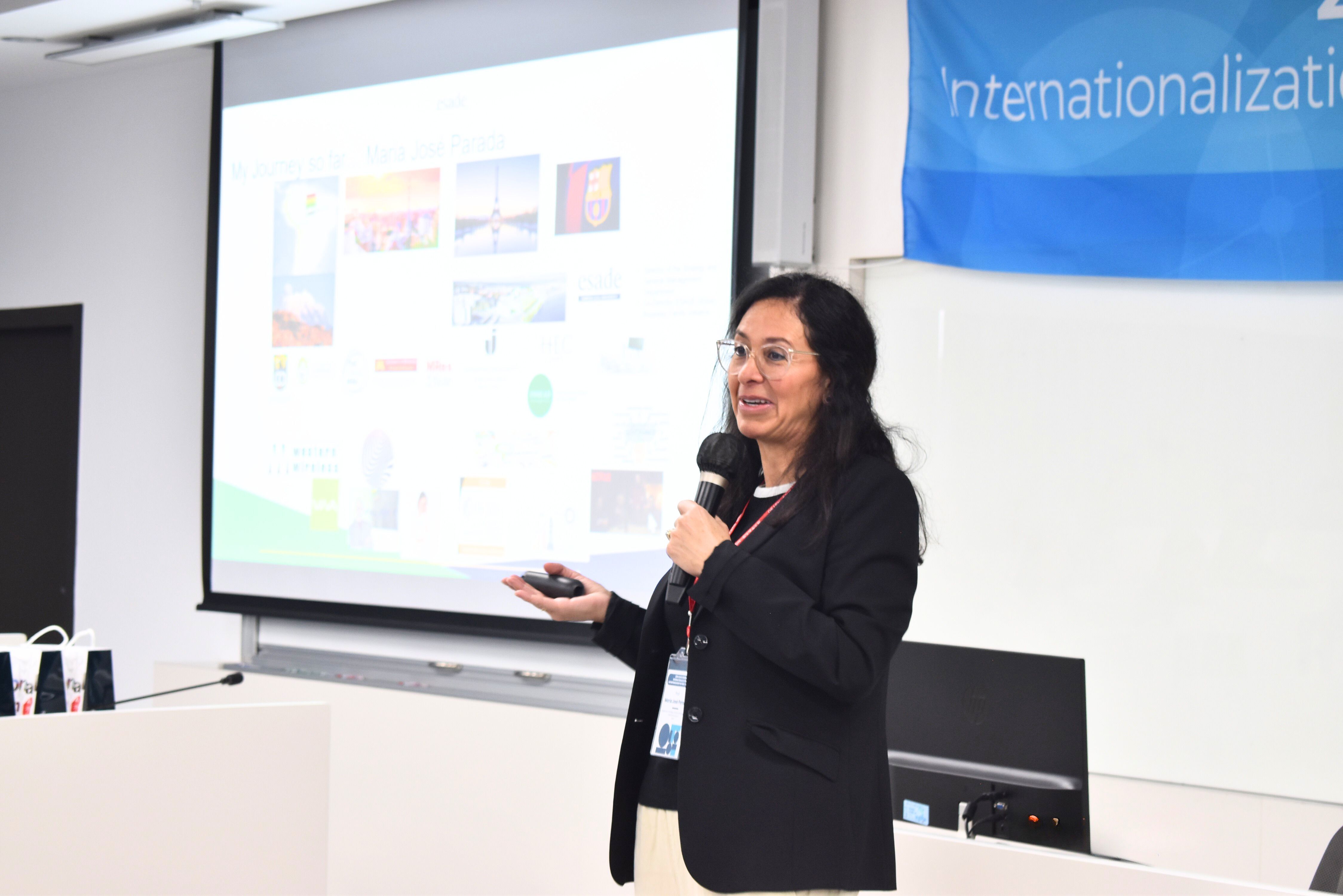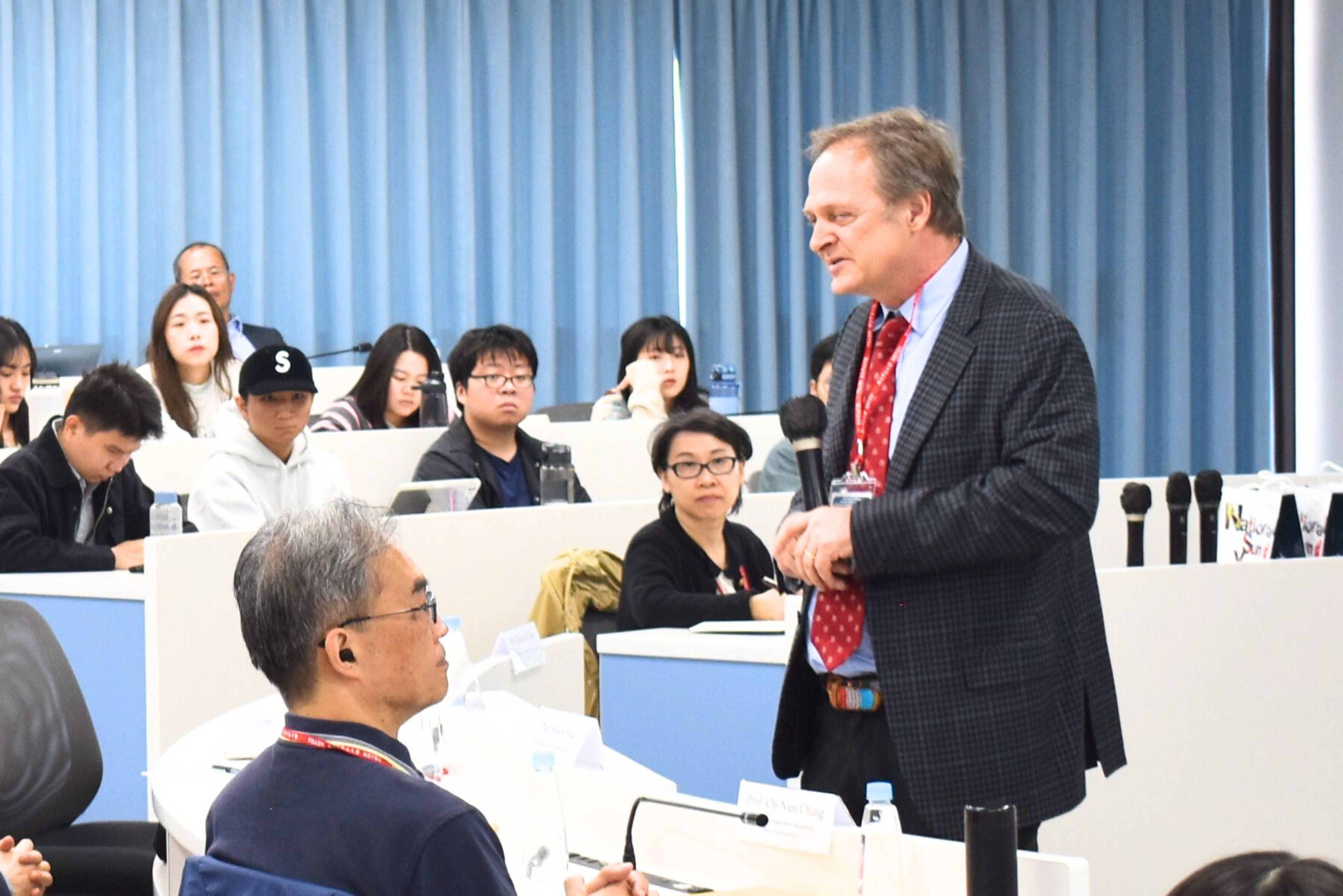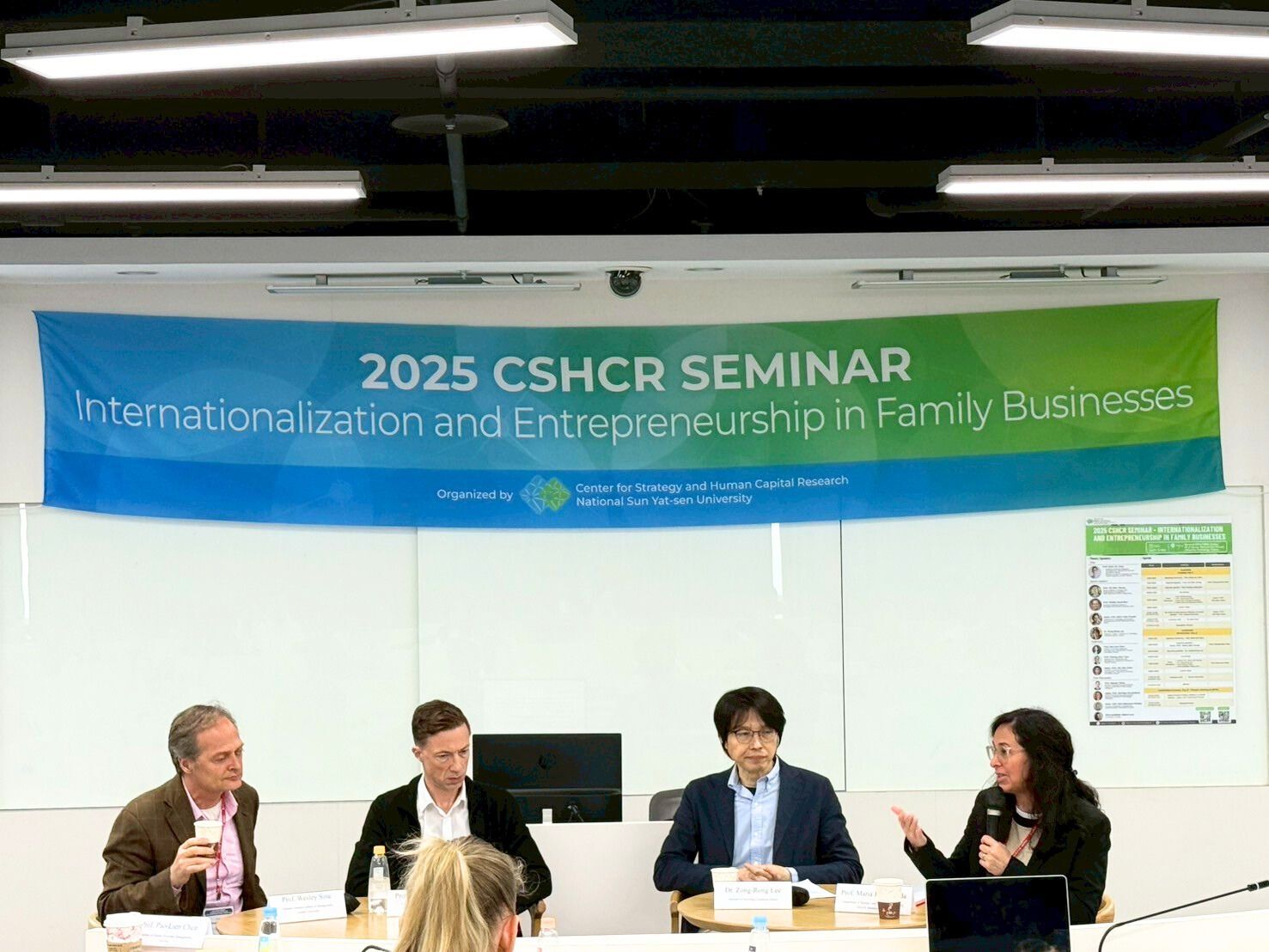2025 CSHCR Seminar- Internationalization and Entrepreneurship in Family Businesses (2025/04/01-04/02)
114/04/01-04/02
2025 CSHCR Seminar- Internationalization and Entrepreneurship in Family Businesses
Family businesses play a pivotal role in economies worldwide, generating vast employment opportunities and economic value. Statistics show that approximately 70% to 90% of businesses globally are family-owned. In the United States, family businesses contribute 64% of the GDP and 78% of employment. In Spain, family businesses have created up to 6.58 million jobs—twice as many as non-family firms. In Asia and emerging markets, the proportion of family-run enterprises is even higher. Taiwan, in particular, is home to many family businesses that have gradually evolved into multinational corporations. However, family businesses face unique challenges in areas such as internationalization, corporate governance, and generational succession.
To gain a deeper understanding of family businesses, the Center for Strategy and Human Capital Research (CSHCR) at National Sun Yat-sen University hosted a two-day conference titled “2025 CSHCR Conference on Internationalization and Entrepreneurship in Family Businesses” from April 1 to 2, 2025. The event was held at the 11th-floor Doctoral Hall of the university’s library and information building. The conference featured scholars from the United States, Spain, Hong Kong, Latvia, and Lithuania, and attracted over 100 participants across the two days. Attendees explored the opportunities and challenges faced by family businesses in the process of internationalization and entrepreneurial development.
The first day of the conference opened with welcome remarks by Professor Shyh-Jer Chen, director of the CSHCR. Professor Chiung-Wen Tsao from National University of Tainan then introduced the guest speakers and their research topics. Professor Chung Chi-Nien from The Hong Kong Polytechnic University was the first to present, sharing his research on the internationalization of family firms, using Taiwanese enterprises as case studies. He pointed out that previous studies have often focused on business operations, particularly the transition from domestic to export-oriented strategies and eventually becoming multinational corporations. However, little attention has been given to how this transition process actually unfolds in practice. Although still in its early stages, Professor Chung’s research reveals that family firms are highly heterogeneous, making it difficult to define a single internationalization path.
Next, Professor Wesley David Sine from Cornell University discussed the role of institutionalization in family businesses. Traditionally, it is believed that companies must be more institutionalized and professional—by establishing rules and clear divisions of labor—in order to succeed. Institutionalization is seen as a way to prevent nepotism and personal relationships from interfering with business decisions, reducing particularism. However, Professor Sine posed a thought-provoking question: "In a family business where family members are inherently deeply involved, could strict institutionalization backfire and actually hurt company performance?" His research team examined 1,401 startups in Peru and found that institutionalization improved performance—by up to 82%—in family businesses where family and business were clearly separated (e.g., separate finances, non-family employees). In contrast, for businesses with close ties between family and company (e.g., co-management by relatives, mixed finances), over-institutionalization led to a 34% drop in performance. Thus, the effectiveness of institutionalization depends on the specific structure of the family firm.
The first day concluded with a roundtable discussion moderated by Associate Professor Min-Nan Chen from the Institute of Human Resource Management at National Sun Yat-sen University. Panelists included Professor Chung, Professor Sine, Associate Professor Neringa Gerulaitienė from Kaunas University of Technology (Lithuania), and Associate Professor Ilona Baumane-Vītoliņa from the University of Latvia. They discussed innovation and internationalization in family businesses, sharing their own experiences with international collaboration—such as collecting data from different countries and conducting cross-cultural research.
On the second day, Associate Professor Maria José Parada from Spain opened with a presentation on succession in family businesses. She described how a family firm often starts with a single founder (e.g., a father or mother) and gradually evolves into a team effort akin to a symphony—where multiple family members work together. She asked: What are the key factors that enable successful generational transitions and continuous innovation? Professor Parada emphasized that while founding a business requires vision and courage, successful succession requires early planning and clear governance. Ultimately, long-term success and continuity depend on the collective efforts of the entire family, shared identity, and collaborative decision-making.
This was followed by a presentation from Dr. Zong-Rong Lee of Academia Sinica’s Institute of Sociology, who examined social class and elite mobility in business. Dr. Lee noted that from the 1980s to the 2000s, the average tenure of CEOs in the U.S. dropped by 30%, while the average tenure of company chairpersons in Taiwan increased from 5.6 years in 2001 to 11.2 years in 2021. From a sociological perspective, he explored how family background and social class affect elite mobility. His research suggests that stable networks built through marriage and family ties help certain elite families and business leaders maintain their positions, providing them with resources and resilience amid market competition and internal challenges.
The second day concluded with another roundtable discussion, moderated by Professor Pau-Line Chen from National Sun Yat-sen University. Panelists included Professor Parada, Dr. Lee, Professor Sine, and Professor Mantas Vilkas from Kaunas University of Technology. Discussions centered on the difficulties of innovation and succession in family firms. Audience questions sparked lively debates, such as: "What if successors are less risk-tolerant and unwilling to take over? Can professional managers fill the gap and help engage the next generation?" and "If professional managers take on key decision-making roles, does the enterprise lose its ‘family business’ identity?" Other questions touched on whether requiring successors to gain external experience helps balance tradition and innovation, and whether not using a family name in the company affects the sense of ownership or identity. These exchanges highlighted the complex interconnection between business and family identity.
Through this two-day conference, participants gained valuable insights into the key factors that enable family businesses to thrive across generations. The event fostered not only in-depth knowledge exchange, but also new perspectives and strategic thinking for the sustainable development of family businesses. The conference concluded successfully, marked by enthusiastic discussions and meaningful dialogue.
Photo Highlights
